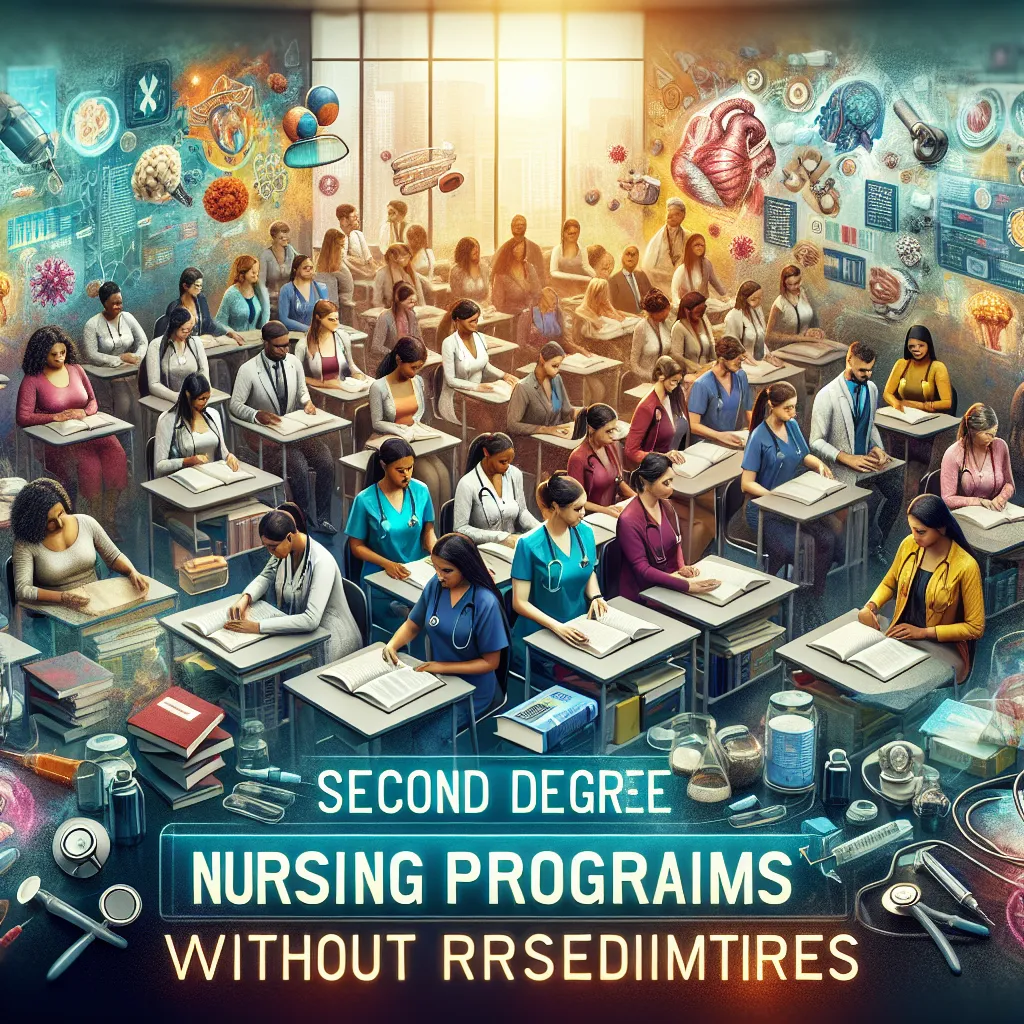Second Degree Nursing Programs Without Prerequisites
Second Degree Nursing Programs Without Prerequisites
In recent years, there has been a growing demand for nurses in the healthcare industry. With the increasing need for qualified healthcare professionals, many individuals with non-nursing backgrounds are considering a career switch to nursing. Fortunately, there are second-degree nursing programs available that allow individuals to pursue a nursing career without having to complete all the traditional prerequisites. In this article, we will explore the concept of second-degree nursing programs without prerequisites and discuss the benefits and challenges associated with them.
What are Second Degree Nursing Programs?
Second degree nursing programs are designed for individuals who already hold a bachelor’s degree in a non-nursing field and wish to pursue a career in nursing. These programs offer an accelerated curriculum that focuses on the core nursing courses, allowing students to complete their nursing education in a shorter period compared to traditional nursing programs. The goal is to provide individuals with the necessary knowledge and skills to become registered nurses (RNs) in a relatively shorter timeframe.
The Benefits of Second Degree Nursing Programs Without Prerequisites
One significant advantage of second-degree nursing programs without prerequisites is that individuals with non-nursing backgrounds can transition into nursing without having to complete all the pre-nursing courses. This means that individuals who already hold a bachelor’s degree in a different field can save time and money by not having to repeat coursework they have already completed. Furthermore, these programs often have a streamlined admission process, making it easier for individuals to enter the nursing field quickly.
Second-degree nursing programs without prerequisites also provide an opportunity for individuals to leverage their previous education and work experience. Many of these programs recognize the transferable skills and knowledge individuals bring from their previous fields, allowing them to build upon their existing foundation. This can result in a more diverse nursing workforce with individuals who have a range of experiences and perspectives, ultimately benefiting patient care.

Challenges to Consider
While second-degree nursing programs without prerequisites offer numerous benefits, there are also some challenges to consider. One of the primary challenges is the intensity of the accelerated curriculum. These programs are designed to cover a significant amount of material in a shorter timeframe, which can be demanding for students. It requires commitment, dedication, and the ability to handle a heavy workload.
Another challenge is the lack of exposure to certain pre-nursing courses. Since these programs skip the traditional prerequisites, students may miss out on foundational knowledge in areas such as anatomy, physiology, and microbiology. However, most second-degree nursing programs without prerequisites compensate for this by integrating the necessary content into their accelerated curriculum. It is essential for students to be prepared to put in the extra effort to catch up on any missed foundational knowledge.
How to Choose the Right Program
When selecting a second-degree nursing program without prerequisites, it is crucial to consider several factors. Firstly, ensure that the program is accredited by the appropriate nursing accrediting bodies. Accreditation ensures that the program meets the necessary standards and will provide a quality education.
Additionally, research the curriculum and course offerings of the program. Make sure it aligns with your career goals and interests. Some programs may offer specialized tracks or concentrations, allowing you to focus on a specific area of nursing.
Furthermore, consider the program’s reputation and success rate. Look for reviews and testimonials from current and former students, as well as information on the program’s NCLEX pass rates. A program with a high pass rate indicates that students are well-prepared for the licensing exam, which is a crucial step in becoming a registered nurse.
Conclusion
Second-degree nursing programs without prerequisites provide a valuable pathway for individuals with non-nursing backgrounds to pursue a career in nursing. These programs offer an accelerated curriculum that allows students to complete their nursing education in a shorter timeframe. While there are challenges associated with these programs, such as the intensity of the curriculum, they offer numerous benefits, including time and cost savings, as well as the opportunity to leverage previous education and experiences. It is essential to carefully research and select the right program to ensure a successful transition into the nursing profession.
